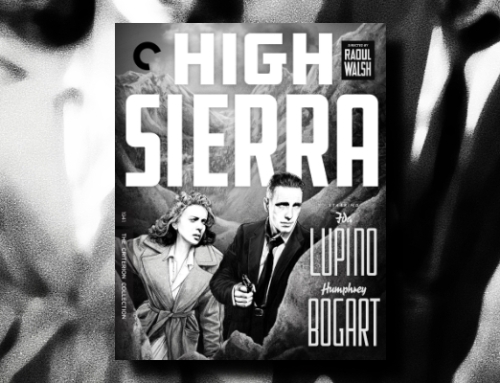
Girlfriends
d. Claudia Weill (1978)
The Criterion Collection
 A few years ago, The Criterion Collection released Donna Deitch’s 1985 film Desert Hearts, and it quickly became one of my favorites. Watching it was such a heartening experience. However, I felt ashamed that not only had I waited so long to see such an important film but I had never even heard of it! Of course, I could blame the fact that there is a strong bias against films by and about women — I was unlikely to encounter a film like Desert Hearts in most of the places I would go to look for film — but I was not looking for it either. At around the time of Criterion’s release of Desert Hearts the company had fixed their priorities and addressed some blindspots in an effort to release more films by and about women, and thankfully they have continued to produce these vital releases. I hope to be a willing beneficiary of the various stories these films tell. I certainly again feel grateful having just seen Claudia Weill’s 1978 film Girlfriends, which Criterion released last week.
A few years ago, The Criterion Collection released Donna Deitch’s 1985 film Desert Hearts, and it quickly became one of my favorites. Watching it was such a heartening experience. However, I felt ashamed that not only had I waited so long to see such an important film but I had never even heard of it! Of course, I could blame the fact that there is a strong bias against films by and about women — I was unlikely to encounter a film like Desert Hearts in most of the places I would go to look for film — but I was not looking for it either. At around the time of Criterion’s release of Desert Hearts the company had fixed their priorities and addressed some blindspots in an effort to release more films by and about women, and thankfully they have continued to produce these vital releases. I hope to be a willing beneficiary of the various stories these films tell. I certainly again feel grateful having just seen Claudia Weill’s 1978 film Girlfriends, which Criterion released last week.
Girlfriends stars Melanie Mayron as Susan Weinblatt, a single adult navigating the perils and possibilities of her future in New York City. I loved it. It is over forty years old, and yet it still feels fresh and vital today.
The movie starts with an evocative moment: in the pre-dawn minutes when light is just starting to creep into the apartment, Susan photographs Anne (played by Anita Skinner), her roommate and best friend. Anne, annoyed, flips on the lamp and chastises Susan, who doesn’t seem to feel too bad.

This is a real friendship. We feel it, captured in this lovely opening scene. We see how much these two rely on one another and care for one another. We also see how complacent Susan is. She kind of takes Anne for granted, as if Anne will always be there.
They are young and folks would have them believe their future is wide open, but there is a great deal of pressure on both women. For one thing, they make little money. Susan is a photographer who has not had a major success as of yet, so she supports her career and her home (barely) by shooting weddings and bar mitzvahs. Anne is an aspiring writer, who also has yet to find a way to make that a career. But after she is finished with her half-hearted rebuke of Susan for violating her sleep, Anne asks Susan to listen to a poem she has been working on. Again, we see a true friendship, vulnerability. There’s also honesty. Maybe it’s not conveyed in the softest way, but Susan doesn’t pretend to like Anne’s latest poem.
Susan pursues life on her own terms. She tries to be honest with Anne, which leads to some hurt feelings and fights throughout, but also to the kind of security that comes from Susan’s type of support. But Susan is not Anne. Soon it is clear Susan and Anne will separate. Anne let’s Susan know she will be getting married to Martin (played by Bob Balaban). Susan will have the apartment all to herself.
The prospect of being on her own is both frightening and exciting for Susan. It’s a comfort, her independence, her coming and going as she pleases, not being defined by a man, or even a roommate. But it is also lonely and unstable.
She and Anne continue being friends, but it’s harder now that they have gone separate ways. It’s maybe worse since each of them knows what was sacrificed.

Susan also has her love interests, including Eli Wallach and Christopher Guest. She pursues these relationships because she wants them, but she is nervous about letting them determine who she is. There’s a lovely scene where she and Christopher Guest test out a newly hung hammock. They must wonder if it will hold them — what a lovely image to convey them testing their budding relationship.

All of these relationships are complex, and I don’t see any as being pedantic. It’s not that Susan and Anne would be happier had they made different choices. It’s not that Anne and her husband are miserable or perfectly happy. It’s not that Susan and her boyfriends have terrible or perfect relationships. These feel like real life, with every choice having its pros and cons. Indeed, the film feels mostly about just that, going through life making choices and paying the price, for better or for worse, and then continuing on.
Again, I feel very fortunate to have this film in my life. It opened my mind further, and I suspect will continue to do so.








Leave a Reply